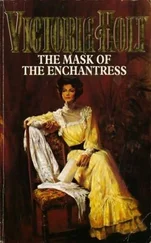Виктория Холт - The Shadow of the Pomegranate
Здесь есть возможность читать онлайн «Виктория Холт - The Shadow of the Pomegranate» весь текст электронной книги совершенно бесплатно (целиком полную версию без сокращений). В некоторых случаях можно слушать аудио, скачать через торрент в формате fb2 и присутствует краткое содержание. Жанр: Исторические любовные романы, на английском языке. Описание произведения, (предисловие) а так же отзывы посетителей доступны на портале библиотеки ЛибКат.
- Название:The Shadow of the Pomegranate
- Автор:
- Жанр:
- Год:неизвестен
- ISBN:нет данных
- Рейтинг книги:3 / 5. Голосов: 2
-
Избранное:Добавить в избранное
- Отзывы:
-
Ваша оценка:
- 60
- 1
- 2
- 3
- 4
- 5
The Shadow of the Pomegranate: краткое содержание, описание и аннотация
Предлагаем к чтению аннотацию, описание, краткое содержание или предисловие (зависит от того, что написал сам автор книги «The Shadow of the Pomegranate»). Если вы не нашли необходимую информацию о книге — напишите в комментариях, мы постараемся отыскать её.
The Shadow of the Pomegranate — читать онлайн бесплатно полную книгу (весь текст) целиком
Ниже представлен текст книги, разбитый по страницам. Система сохранения места последней прочитанной страницы, позволяет с удобством читать онлайн бесплатно книгу «The Shadow of the Pomegranate», без необходимости каждый раз заново искать на чём Вы остановились. Поставьте закладку, и сможете в любой момент перейти на страницу, на которой закончили чтение.
Интервал:
Закладка:
“You are right there,” cried Henry. “By God, Mr. Ambassador, this baby never cries.”
Mary was almost perfect in the eyes of the King. If she had but been a boy she would have been quite so.
BEFORE FERDINAND’S DEATH he had recalled Caroz and sent in his place Bernardino de Mesa, a very different type from Caroz. De Mesa was a Dominican friar, quiet, seemingly humble but in truth one of the shrewdest of Spaniards. It was a master stroke for Ferdinand to have sent him because his outward meekness was just what was needed to offset Wolsey’s arrogance and ostentation.
Ferdinand had realized too late that the Cardinal was the real ruler of England. However, de Mesa immediately began an attempt to repair the damage Caroz had done; and it was on de Mesa’s suggestion that Ferdinand had sent Henry the handsome present.
But Ferdinand was dead; de Mesa would have a new master; Katharine was no longer interested in politics as her attention was focused on her daughter; but Wolsey favored the Spanish ambassador because he was knowledgeable in that field which was one of the utmost interest to the Cardinal—the Papal Court.
De Mesa waited apprehensively for new policies. While Ximenes was Regent he imagined that there would be little change; but what would happen when young Charles took the reins of government, guided no doubt by his Flemish favorites?
De Mesa sought to speak to the Queen of these matters but Katharine had become half-hearted, since her father’s perfidy and death had shocked her deeply.
She no longer wanted to feel herself a Spaniard; she had her daughter to absorb her; and all the time de Mesa was seeking to draw her attention to European politics she was thinking: How she grows! To think that we can dispense with Katharine Pole’s services now! She will be easily weaned. Was there ever such a good tempered child? They say sweet temper means good health. Soon she will have her own household, but not yet. For a while her place will be in her mother’s apartments.
She smiled absently at the Spanish ambassador, but she did not see him; she saw only the bright eyes of her daughter, the round, chubby cheeks and that adorable fluff of reddish hair on the top of the exquisite little head which so delighted the child’s father.
And when Henry’s sister, Margaret, Queen of Scotland, came to London to seek her brother’s help against her enemies, Katharine’s great interest was in discussing Margaret’s children with her and trying to win her sister-in-law’s admiration for the beloved little Princess.
“’Prentices and Clubs”
THE FOLLOWING SPRING THERE WAS DISQUIET IN THE streets of London.
During recent years many foreigners had settled there, and these people, being mostly exiles from their native lands—serious people who had fled perhaps for religious reasons—were by nature industrious. Day in, day out, they would be at their work, and so they prospered. There were Flemings who were expert weavers; Italians who were not only bankers but could make the finest armor and swords. The Hanseatic traders brought over leather, rope, wax, timber, nails and tar; and of course since the coming of Katharine to London to marry Prince Arthur there had always been Spaniards in London.
Life was hard for the citizens of London. During the cruel winter many had died of starvation in the streets and there had been rumblings of dissatisfaction all through the year.
With the coming of spring the young apprentices gathered in the streets and talked of the injustice of foreigners coming to their city and making a good living, while they and their kind lived in such poor conditions.
They themselves could not understand the joy some of these cordwainers and weavers, these glaziers and lacemakers found in the work alone. They did not seem to ask for pleasure as the apprentices did. They cared for their work with the passion of craftsmen, and those who lacked this skill were angry with those who possessed it.
They met in Ficquets Fields and near the Fleet Bridge, and talked of these matters.
There was one among them, a youth named Lincoln, who demanded: “Why should we stand by and see foreigners take away our livings? Why should we allow the foreigners to live in our city at all?”
The ignorant apprentices shook their fists. They had a leader; they craved excitement in their dull lives. They were ready.
So on a May morning of the year 1517, instead of rising early to go and gather May flowers in the nearby countryside, the apprentices gathered together and, instead of the cry “Let’s a-maying,” there were shouts of “’Prentices and Clubs!”
The revolt had begun.
The apprentices stormed into the city; there were hundreds of them and they made a formidable company. Through the streets of London they came, carrying flaming torches in their hands; they broke into the shops of the foreigners; they came out carrying bales of silk, the finest lace, jewels, hats, textiles.
When they had ransacked these shops and houses they set them on fire. News was brought to the King at Richmond.
Henry was first angry; then alarmed. The people could always frighten him because he had a dread of unpopularity.
He decided to remain at Richmond until others had the revolt under control.
CHAOS REIGNED in London.
The under-sheriff of the city, Sir Thomas More, pitying the plight of the apprentices and knowing that they would be quickly subdued, went among them, risking his life, for tempers were running high, imploring them to stop their violence.
Wolsey meanwhile had taken the position in hand and had sent for the Earl of Surrey who arrived with troops and very soon had hundreds of people under arrest and others hanging from gibbets which had been quickly erected throughout the city.
Meanwhile Henry waited at Richmond, determined not to go into his capital until order was restored.
It was eleven days after the uprising that he rode into the city and took his place on a dais in Westminster Hall. With him came three Queens—Katharine, Mary—who had been Queen of France and was far happier to be Duchess of Suffolk—and Margaret, Queen of Scotland.
“Bring the prisoners to me,” cried Henry, his brows drawn together in a deep frown, “that I may see these people who would revolt against me.”
There was a sound of wailing from the spectators as the prisoners were brought in. There were some four hundred men and eleven women, all grimy from their stay in prison, all desperate, for they knew what had happened to their leaders and they expected the same fate to befall themselves; they even came with ropes about their necks; and in the crowd which had pressed into the Hall and clustered round it were the families of these men and women.
The King raged in his anger. They had dared rise against his merchants; they had burned the houses of his citizens; they deserved the worst death which men could devise.
His troops were stationed about the city; his guards surrounded him, and he was eager to show these people the might of the Tudor.
Wolsey came close to him. He said: “Your Grace, I beg of you in your clemency spare these men.”
Henry’s little eyes glittered. He hated them, those wild-eyed men and women. They had dared show criticism of his rule. Yet…they were the people. A King must always please his people.
He caught Wolsey’s eye; the Cardinal was warning him: “It would be as well, Your Grace, to pardon these men. A fine gesture…here in the heart of your capital. A powerful King but a merciful one.”
Yes, he knew. But here was the spirit of the masque again. He must play his part as he always had done.
He scowled at Wolsey and said: “These prisoners should be taken from here and hanged by the neck on gibbets prepared for them within the city.”
Читать дальшеИнтервал:
Закладка:
Похожие книги на «The Shadow of the Pomegranate»
Представляем Вашему вниманию похожие книги на «The Shadow of the Pomegranate» списком для выбора. Мы отобрали схожую по названию и смыслу литературу в надежде предоставить читателям больше вариантов отыскать новые, интересные, ещё непрочитанные произведения.
Обсуждение, отзывы о книге «The Shadow of the Pomegranate» и просто собственные мнения читателей. Оставьте ваши комментарии, напишите, что Вы думаете о произведении, его смысле или главных героях. Укажите что конкретно понравилось, а что нет, и почему Вы так считаете.







